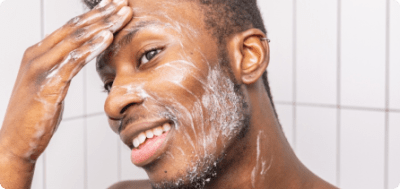
Arginine/Lysine Polypeptide
Arginine/lysine polypeptide is a skin care ingredient that slows down aging processes in the skin and boosts regeneration. It is in a class of ingredients also found on ingredients lists as acetyl hexapeptide, acetyl tetrapeptide, acetylarginyltryptophyl diphenylglycine, azelaoyl bis-dipeptide, copper heptapeptide-14 pantothenate, dipeptide, dipeptide diaminobutyroyl benzylamide diacetate, ferric hexapeptide, heptapeptide-15, palmitate, myristol hexapeptide, myristol pentapeptide, myristoyl nonapeptide, myristoyl pentapeptide, oligopeptide, palmitoyl tripeptide, palmitoyl decapeptide, palmitoyl heptapeptide, palmitoyl hexapeptide, palmitoyl nonapeptide, palmitoyl oligopeptide, palmitoyl pentapeptide, palmitoyl tetrapeptide, palmitoyl tripeptide, palmitoyl tetrapeptide, pentapeptide, sh-oligopeptide, tetrapeptide and copper palmitoyl heptapeptide.
What is Arginine/Lysine Polypeptide?
Many peptides function as anti-ageing ingredients in skincare, due to their ability to fit specific receptors in the body to trigger anti-ageing responses. This includes mechanisms like collagen production, cell regeneration or even blocking muscle contractions to smooth expression lines.
What does Arginine/Lysine Polypeptide do?
Helps to preserve the skin’s natural collagen and elastin by offsetting substances within skin that cause both to degrade over time.
Who is Arginine/Lysine Polypeptide good for?
If any of the following apply Arginine/Lysine Polypeptide might be a good option for you:




Who should avoid Arginine/Lysine Polypeptide?
If any of the following apply it might be best to avoid Arginine/Lysine Polypeptide:



Complete our quick quiz, then upload photos or book a video call (priced at £20 or £35)


Our award-winning AI analyses your skin before your aesthetician creates your personalised routine


Message your aesthetician with any questions and check-in as your skin changes for ongoing advice

